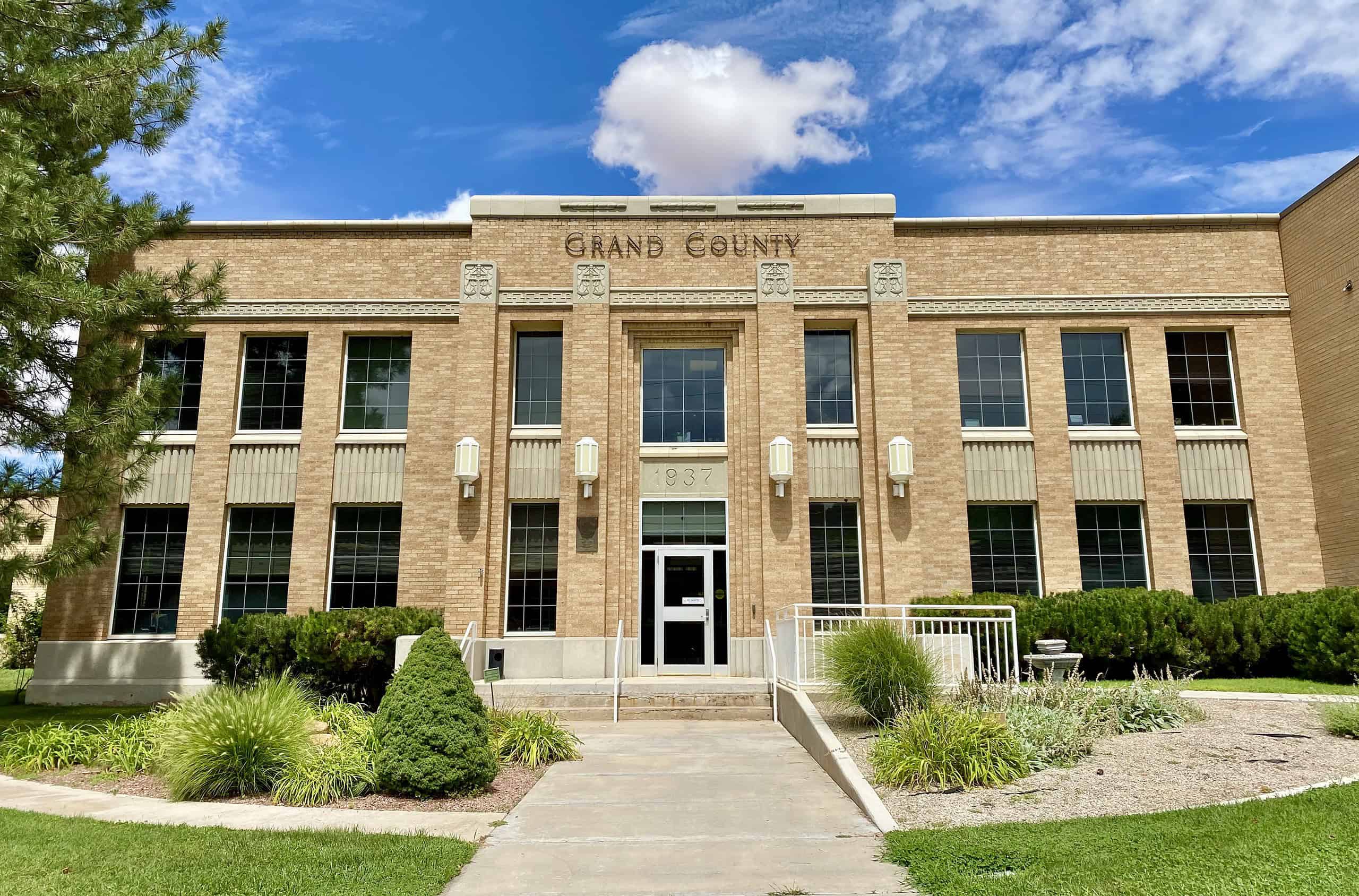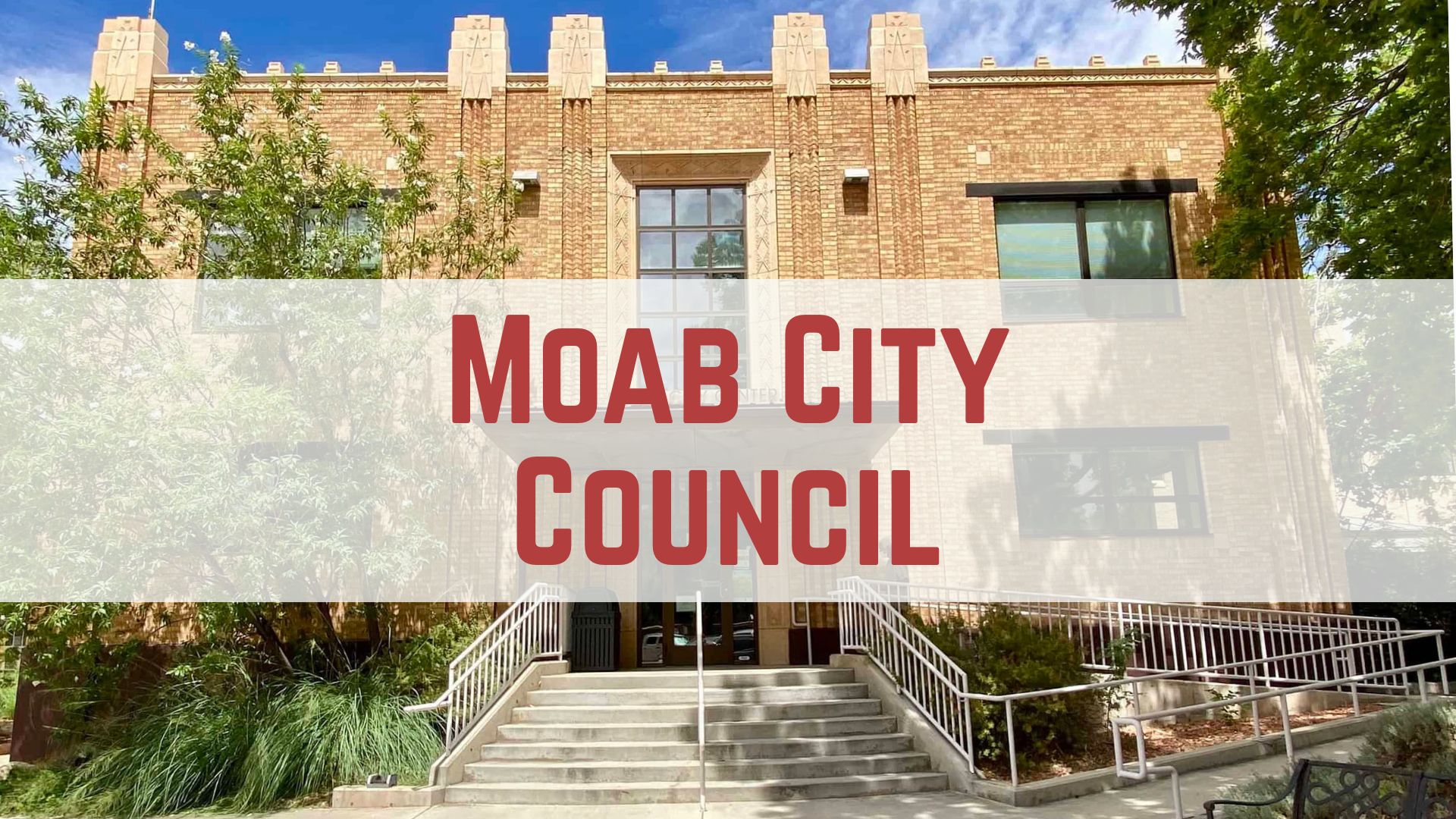Some information may be outdated.
The Grand County Commission held a public hearing on a draft ordinance codifying “alternative dwellings” such as tiny homes and RVs as long term residences. The Grand County Planning Commission and county staff have been working on the draft for months, trying to balance affordability and livability in the alternative units as well as quality of life in neighborhoods where alternative dwelling developments might be established, state and federal building codes and public health and safety concerns, and the variety of circumstances of people currently in unstable or unsustainable housing situations. The current draft ordinance would only allow for 150 alternative dwelling units to be approved in a pilot program to see how the policy works out.
A few residents offered comments at the meeting. Kya Marienfeld, who is the chair of the city’s planning commission but was speaking on behalf of herself as an individual, said she supports the idea.
“I think it’s a super important provision,” Marienfeld said. “There are people that are ready to do this with their property… it would have a really marked, important impact on our housing crisis in the short term, where I think we have a lot of things in the pipeline long term.”
Brian Martinez, manager of Navtec Expeditions guide company, said he supports the draft even though it’s not his ideal solution. For years, Navtec employees have been camping on a parcel owned by the company as an affordable housing solution, but last year county code enforcers issued a compliance order on the property saying the campers had to leave. There’s a stay on that order until October, but eventually the company and the guides will have to find a legal solution, which may come from the alternative dwelling ordinance. Martinez pointed out that many guides are only in town for a few days a week, and don’t need amenities like a shared kitchen; those facilities will be expensive for the company to build.
Another commenter said he worried about how alternative dwelling developments could substantially change the character of neighborhoods.
Commissioners said they’ve received many concerned comments from residents about the ordinance, particularly from Spanish Valley residents who say there’s already a lot of illegal camping happening in their neighborhoods: homeowners renting out RVs or spaces for RVs on their properties. Staff say the ordinance will allow those illegal campers to come into compliance with county code, but clarified that that doesn’t mean they’ll get a stamp of approval to stay where they are; rather, the county will have an alternative, legal solution for those people, and can work with them to get them to a legal alternative dwelling development.
Commissioners had a lot of questions about the ordinance: would tents or yurts be allowed under the policy? What parameters would the commission use to determine where alternative dwelling developments are appropriate? Is the intention of the ordinance geared more toward generating large, long term camp parks, or toward small alternative dwelling developments among neighborhoods? How can the county ensure that they remain affordable?
County Planning Director Elissa Martin said the county isn’t allowed to implement any rent-control measures; deed-restricting the alternative dwelling units to Grand County employees would be the county’s proxy way of keeping them affordable.
Commissioner Kevin Walker said he supports the development of cheap, alternative housing:
“I totally understand people, especially younger people, who just want to be here and they’re not looking for anything fancy,” Walker said. “I very much like the idea of creating more options for housing.” However, he wants more clarity in the ordinance, and also questioned the need for some amenities required in the draft, such as a shared kitchen for developments in which each unit doesn’t have its own.
Officials working on the policy have been driven by a sense of urgency: there are many people homeless or in unstable housing right now in Grand County, and staff hope to offer an avenue to safe housing for those people as soon as possible. Commissioner Trisha Hedin cautioned the county not to go too fast, however.
“I don’t want to rush to the point that we’re going to produce something that’s a junk show, that’s not safe, sanitary conditions,” she said. “We want to make this a part of our community, that is going to provide housing that is dignified.”
Among all the questions and concerns, commissioners said they’re eager to support the development of more affordable housing—they understand the need is great.
Commissioner Chair Jacques Hadler addressed some comments the commission has received suggesting that commissioners don’t understand the experiences and hardships of workers who live in unstable housing or in their vehicles, or who camp. Hadler pointed out that most of the commissioners have lived in some kind of alternative situation at some point during their time in Moab.
“I think most of us here have worked seasonally, lived out of our vehicles, camped…when I first got to town, for at least five years, I was living out of my truck,” Hadler said. “And working seasonally and scrambling for a place to be.”
“I lived in a camp trailer for at least five years,” Hedin said, remembering sticking it out through two particularly cold winters.
The commission agreed to schedule a long workshop ahead of the next meeting to discuss details of the ordinance. The public comment period will be open up until the end of the workshop on Oct. 4.
Appreciate the coverage? Help keep local news alive.
Chip in to support the Moab Sun News.





